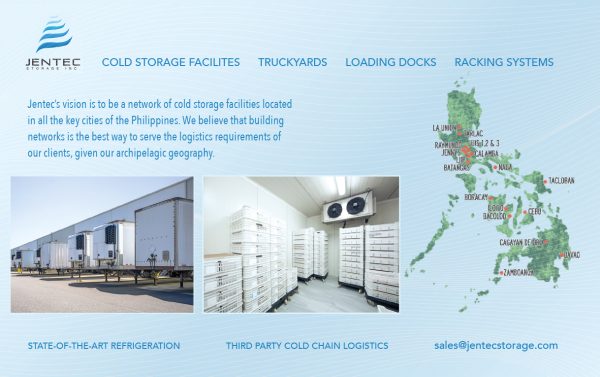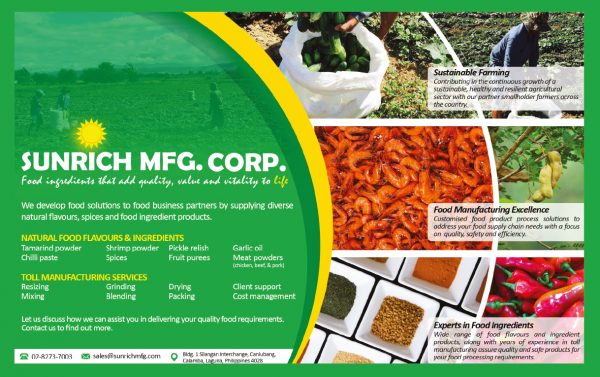Faced with a market filled with Western-style fast food, Unilever Food Solutions (UFS) Philippines Managing Director BJ Carreon saw an opportunity. “We wanted to bring relevance again to Filipino and Asian cuisine while we continue to cater to a market filled with Western-style fast food such as McDonald’s and local fried chicken chain Jollibee, which are our partners as well,” he explains.
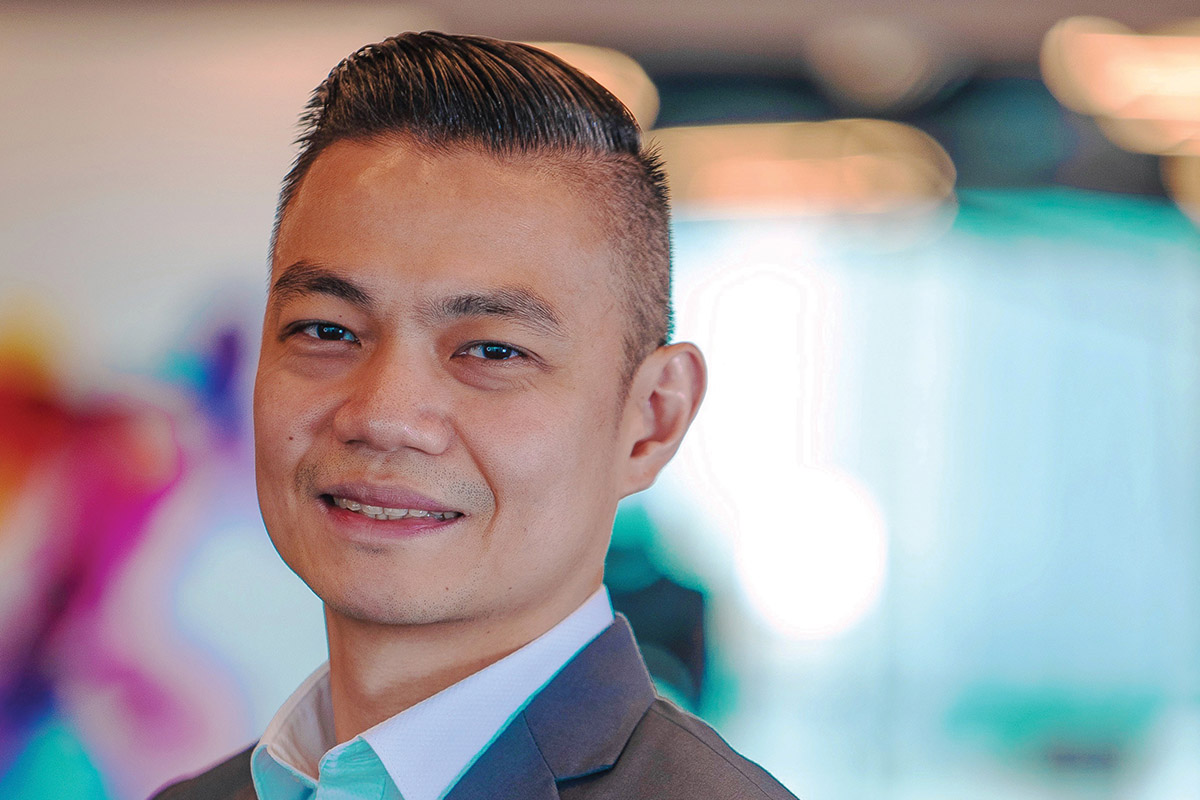
“To re-establish what it means to be Filipino – what it means to be Asian – in the Philippine food industry is fulfilling for us at UFS.” The unique cultural crucible that is the Philippines – a rich Indigenous heritage blended with Spanish and American colonial influences, as well as those of its South-East Asian neighbours – is a foodie’s delight.
The appeal of Filipino food lies in its freshness, variety, local ingredients and flavours that reflect the country’s mixed upbringing. While the defining characteristics of Filipino cuisine vary from region to region across the nation’s 7,000-plus islands – some are salty, some are sweet, others are seafood-heavy – all support a growing culinary tourism market.
Even Jollibee, which emulates the look and feel of its Western competition, emphasises the tastes of the Filipino market over a global flavour, a move that allowed the homegrown chain to keep the McDonald’s juggernaut at bay.
So it’s no surprise that when multinational consumer giant Unilever established itself in the Philippines, it did so with the intention to keep its food solutions as local as possible. “We’ve done a lot of work to build purpose for our brands,” BJ says.
“That’s been one key change we’ve worked to implement over the past 10 years, not just with food but also across the entire Unilever range. We want to make sure that when our brands reach our consumers, they mean something.”
To re-establish what it means to be Filipino – what it means to be Asian – in the Philippine Food Industry is fulfilling for us at UFS.
BJ joined Unilever Philippines straight out of university, from Strategy Coordinator for the Foods and Home & Personal Care distribution business to reaching the top job at Unilever Food Solutions in 2016. A global leader in food service, UFS seeks to raise the standards of professional food services by improving the skills and resources available to chefs.
It provides personnel, training, recipes and high-quality ingredients to clients of all sizes, from school canteens to five-star restaurants.
“The food service division is an exciting market to be in. Until recently, we’d been growing almost three times the average market rate within Unilever. We’ve doubled the business since 2016,” BJ explains. The ability to lead this charge comes from his years of experience within Unilever.
“I’ve been with both the food service and the retail divisions in nearly 15 years with Unilever, and I’ve seen quite a change in the business in that time. The digital transformation has been the biggest, and the pandemic has really accelerated that.”
Having risen through the ranks, BJ has had hands-on experience at nearly every level of the company’s operations. “My first job was selling our ingredients. I did that for 18 months, and I learned that what really drives the company’s results is not the executive board or the leadership teams. It’s the people making the sale, our distribution personnel.”
While the sales teams are forced to work from home due to COVID-19 lockdowns, BJ says the distributors are the ones risking their wellbeing by attending multiple sales calls. “Honestly, you have to have a sense of humility to understand the value you bring as a Unilever employee in management,” he says.
“If it weren’t for the people, we wouldn’t be as successful as we are. It’s a perfect example of how much people matter.” Which is why BJ’s leadership philosophy is very much people first.
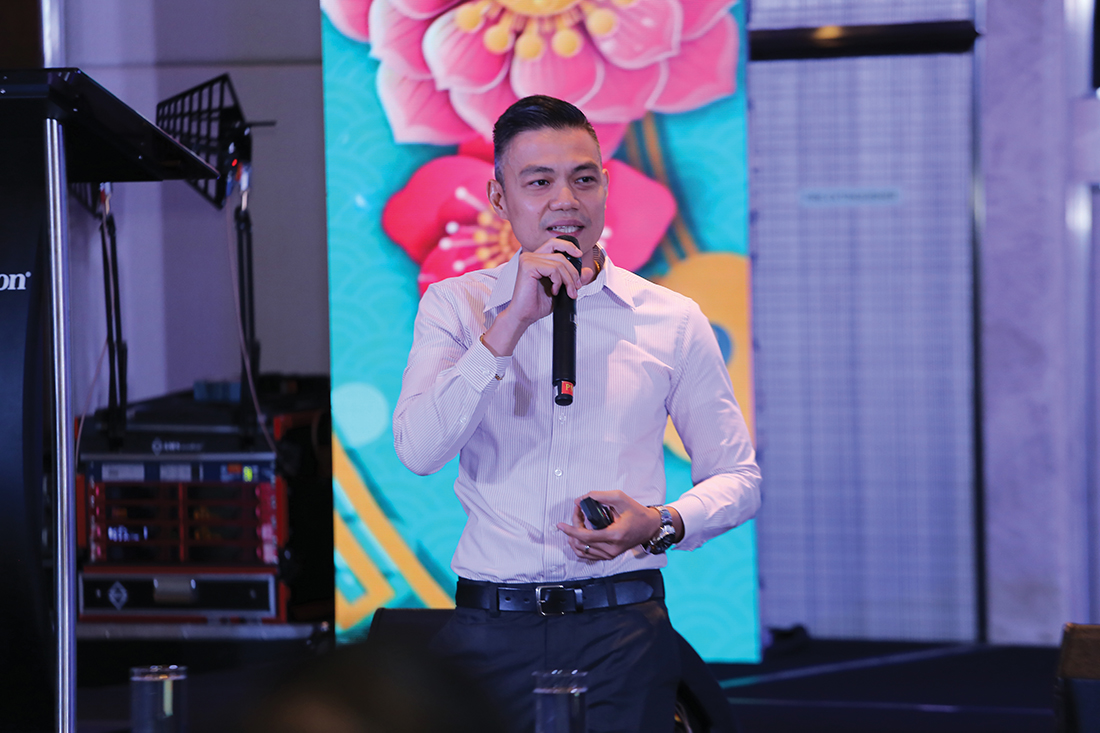
“No matter what strategy you’re engaged in, whatever transformation it involves, you have to start with the people, the hardship and the mindset,” he insists, adding that leading by example is the best way to get results.
“Before you ask someone to deliver your target, make sure you’re able to deliver it yourself. You must know how to deploy the required capabilities and how to use the tools. You show them what you expect by doing it yourself, or being able to do it yourself. That’s what I stand for as a leader.”
Unilever has changed with the times, shifting from being a “traditional company” in its dealings with its chefs – by sending them to large, formal cooking schools for lessons in European cuisine – to emphasising local recipes and making the most of its state-of-the-art Chefmanship Academy in the Philippines, as well as following new trends.
“Nowadays, a lot of that knowledge can be passed on through the internet,” BJ says. “There’s a new generation of chefs, millennial chefs, who have not taken the lead of different brands of food service. We’re working on meeting their needs, which are quite different from chefs of previous generations, and helping them by being a progressive coach to these up-and-coming chefs, offering dish inspirations and the culinary training they need.”
UFS’s recognition of these “gen-Z chefs” has led, in a roundabout way, to bigger reforms throughout the company at a time when the global COVID-19 pandemic has brought with it changes of another kind.
“We’re looking at how we can explore sanitation and hygiene solutions in conjunction with food products,” BJ says. “These can also be useful to food service outlets. We’re also making sure sustainability is a consideration, not just in terms of our service brands, but also in the products, in the ingredients we offer to this new breed of chefs and service operators.”
The refreshment of these methods and practices serves to strengthen the company’s already powerful brand. “We’re a very strong brand because we’re so entrenched in Filipino cooking,” BJ points out.
If it weren’t for the people, we wouldn’t be as successful as we are.
“For example, our grandmothers and great grandmothers would use brands such as Knorr or Lady’s Choice condiments. Those brands are now a part of Unilever, but they’re also a part of that traditional Filipino home-cooked flavour. That’s luck, pure luck.”
Luck it may be, but it’s also reality, and BJ is firm that it’s not something to become complacent about. “To stay ahead, you have to keep innovating,” he adds. That innovation comes from discovering new trends that will appeal to millennial chefs, something the UFS consumer market insight team does on a daily basis.
“It’s in-house – it’s 3D scopes of the latest trends and it’s listening to social media. It’s natural to go external rather than looking inward if you’re trying to grow the business.” As with his leadership style, providing the next big thing for consumers is another instance of BJ’s instinct to put people first.
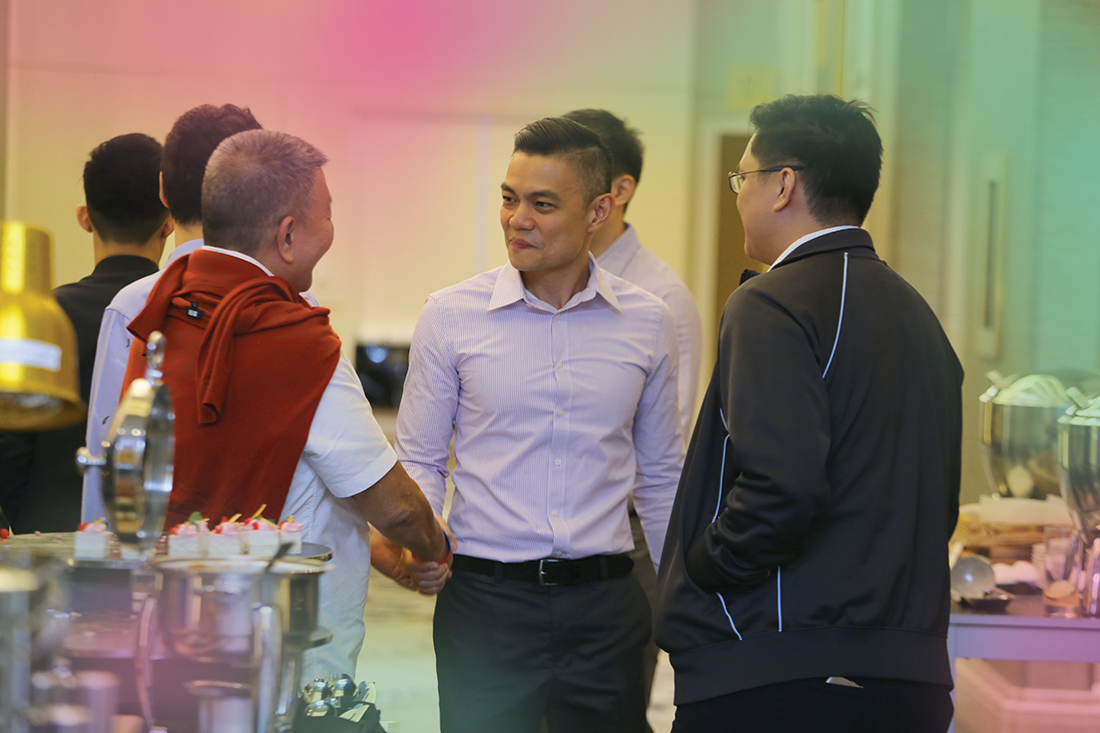
“We’ve built a go-to-market organisation that puts the chefs and operators at the heart of everything,” he says. “Everything we do, be it launching a product or deploying a promotion, we have the luxury of running it by our operators. We have good relationships with top players in the industry. That’s the buyers, the high-end diners and their chefs. I think what sets UFS apart is that customer and consumer centricity.”
And since UFS deals directly with customers serving their diners, it creates a connection that BJ believes keeps the company relevant. “Especially the chefs – they’re the ones using our ingredients, condiments, sauces and dressings,” he says.
“I think those three things make this company the high-performing business unit it is, and after the dust of the pandemic settles, we can see plenty of opportunities to continue our transformation, to digitalise, and to make sure people remain at the forefront of what we’re doing.”
Unilever’s strong array of partnerships with Philippine distributors, wholesalers and supermarkets is also instrumental to its continuing success. “It could be overseas partners, it could be our local partners like Jollibee, Max’s Group and The Moment Group. No matter who we deal with, we work hard to create a win–win relationship,” BJ says.
Once that deal is in place, UFS works even harder to take care of its partners and carry collaborations into the long-term. “We also involve them in our plans and innovations,” BJ says.
“We share capabilities and skill sets and, at the same time, we take in their teams and learn from them. Both organisations thrive and have an opportunity to develop.”
As the Philippines continues to emerge from the pandemic, BJ’s people-centric approach has helped keep UFS in a position of strength within the industry. In trying to define that success, he points to a change that has flown under the radar for many, but is no less seismic in its positive effect.
“We’ve deployed the right skill sets, mindsets and capabilities our teams need not just to be successful within Unilever, but also outside of the company.”
BJ believes that a team living with a purpose beyond the nine-to-five is a team on which to build future growth and triumph. “They need to be living out their purpose, be it as a loved one, a spouse, a parent, something more than simply being an employee of the company,” he asserts. “That’s how you make sure your team is future fit.”
Proudly supported by:
